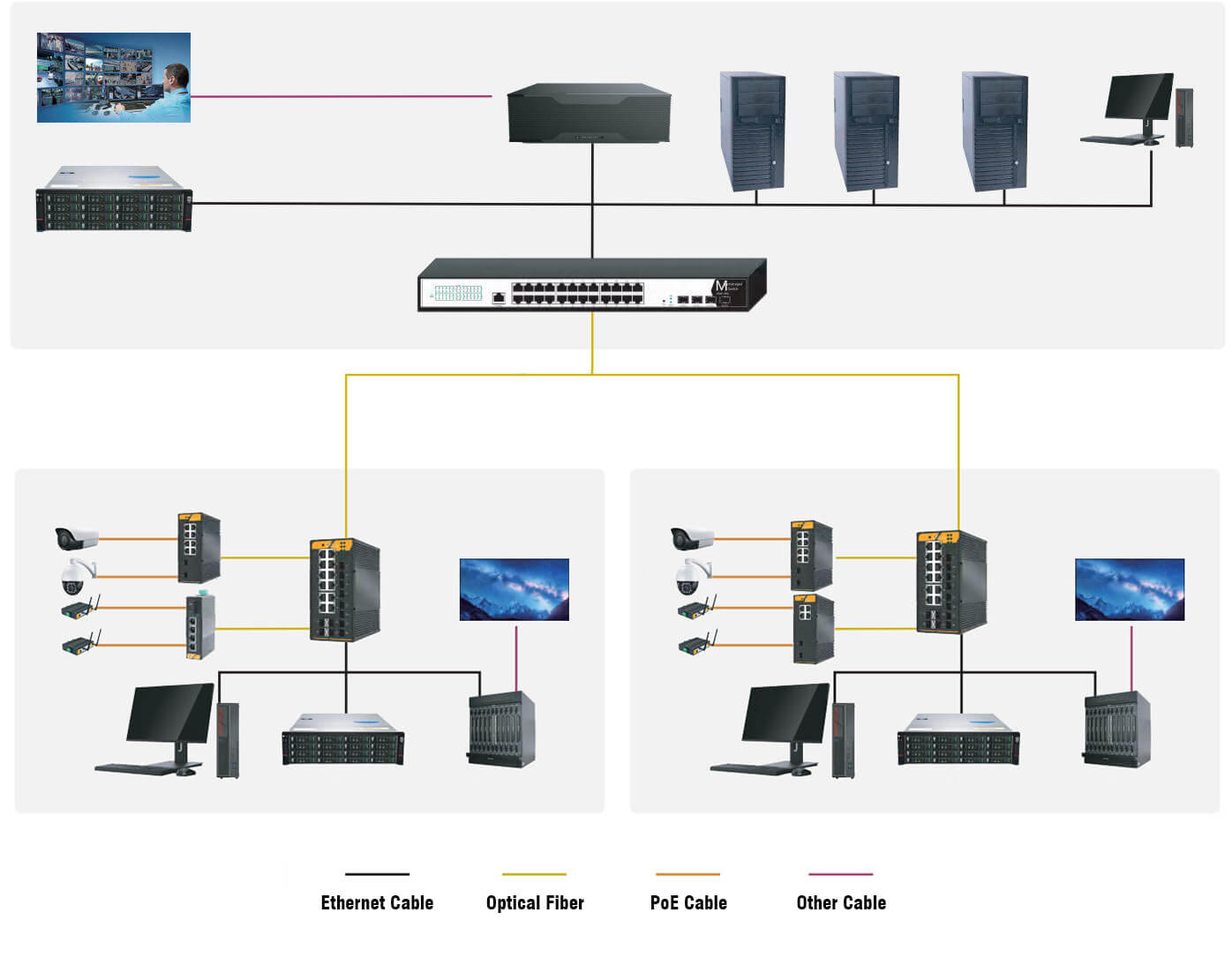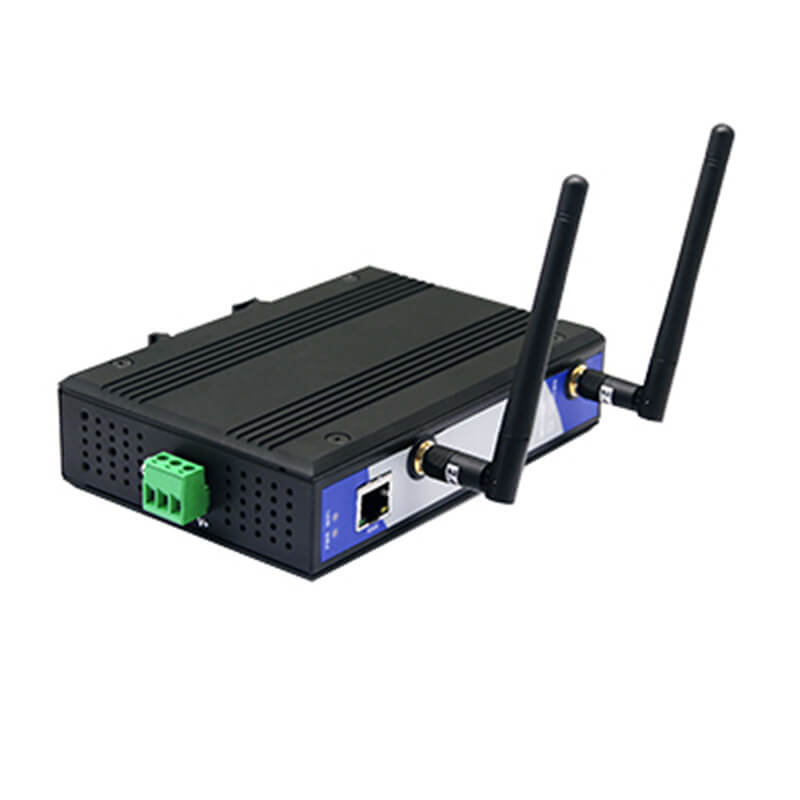Smart port development demands a robust security system that ensures the safety of cargo, infrastructure, and personnel. As high-traffic gateways for global trade, modern ports require intelligent monitoring solutions to manage complex logistics, protect critical zones, and minimize security blind spots. This system provides continuous, real-time surveillance across port entry channels, docks, roadways, and storage areas—reducing manual patrol pressure and improving emergency response with accurate video evidence and centralized control.
System Overview and Deployment Strategy
The surveillance system is built on a layered architecture that supports both port-wide and terminal-level operations. It includes a range of front-end devices like high-resolution IP cameras (wide-angle, thermal, explosion-proof), strategically deployed across entry points, container yards, perimeter roads, and sensitive cargo zones.
All devices are connected via a dual-tier network structure—combining wired and wireless transmission—for reliable and flexible data delivery. Storage is distributed across a micro-cloud (per terminal) and a centralized port cloud, ensuring redundancy and fast retrieval of footage. The command platform integrates all video streams into a centralized management center, enabling fast event response and operational oversight.
Key Features of the Security System
To ensure broad functionality and adaptability, the system includes the following core components:
- Advanced Video Collection
High-definition IP cameras capture 24/7 footage in various lighting and weather conditions, including thermal imaging for nighttime or low-visibility monitoring. - Mobile Enforcement Tools
Body-worn cameras and drones provide flexible, on-the-move visual coverage for emergency teams and remote inspections. - Reliable Transmission Network
A dedicated dual-layered transmission structure—featuring both fiber and wireless APs—ensures low-latency, high-bandwidth streaming across all port sections. - Scalable Storage Architecture
Video is stored in localized terminal clouds and synced with the port’s main data center for long-term access and disaster recovery. - Unified Control Platform
Video walls, decoding platforms, and an interactive dashboard offer centralized control with tiered user access based on clearance level.
Integrated Smart Port Management Platform
At the heart of the solution is a two-level control platform architecture: one at the terminal level, and the other at the port command center. Each platform manages its own surveillance feeds, device health status, and user access. These platforms also allow real-time alerts, emergency command activation, and smooth coordination between port personnel and law enforcement agencies.
System Topology Overview for Smart Port Security Operations
 TV Wall Standard Cloud Intelligent Application Server Decoder and Splicing Controller Integrated Machine Management Server Streaming Media Server Transportation Platform Core Switch Sub-control Center A Sub-control Center B Access Layer Switch Access Layer Switch Aggregation Switch Aggregation Switch Wireless Access Point Security Camera Large Display Screen Operation Client Micro Cloud Video Integration Platform SH-MR7424 SH-GM0208T SH-GM0208T SH-G0104T SH-G0204T SH-GM012012 SH-GM012012
TV Wall Standard Cloud Intelligent Application Server Decoder and Splicing Controller Integrated Machine Management Server Streaming Media Server Transportation Platform Core Switch Sub-control Center A Sub-control Center B Access Layer Switch Access Layer Switch Aggregation Switch Aggregation Switch Wireless Access Point Security Camera Large Display Screen Operation Client Micro Cloud Video Integration Platform SH-MR7424 SH-GM0208T SH-GM0208T SH-G0104T SH-G0204T SH-GM012012 SH-GM012012Operational Benefits and Future Scalability
The smart port system not only enhances day-to-day surveillance but also helps prevent safety incidents before they escalate. With integrated video intelligence and AI-based analytics, the system supports motion tracking, unauthorized access alerts, and anomaly detection—adding predictive power to traditional monitoring. It’s also scalable, designed to grow with future port expansions and to support advanced automation such as unmanned gates and AI-assisted cargo verification.






